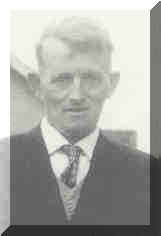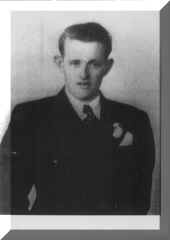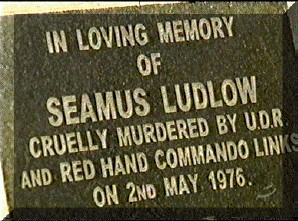Successful pressure from the Department of Justice is believed to have been
behind last week's announcement by Taoiseach Bertie Ahern that the inquiries
into the Loyalist bombings of Dublin-Monaghan and Dundalk in the 1970's and
the murder of Dundalk man, Seamus Ludlow would be private and in the case of
the Ludlow killing would not result in a published report.
Government sources say that the Ludlow investigation will also be limited
in another important respect. While the inquiries into the Dublin-Monaghan and
Dundalk bombings could, the sources say, open the way for a full public
inquiry later on this will not be the case as far as the Ludlow murder is
concerned. The private inquiry is all that is on offer to the Ludlow relatives
who have conducted a 23 year long campaign to establish the truth behind the
killing.
Lawyers for the Ludlow family have written this weekend to the Taoiseach
and the Minister for Justice saying that a private inquiry would not be in the
public interest and protesting at the decision, made to safeguard criminal
proceedings, not to publish any report. The letter also hints that the family
may boycott the inquiry saying that on the available information a private
investigation would not have "any constructive purpose".
Critics of the decision say that the proposed private inquiries seriously
weaken the ability of the government to criticise the British over any
possible mishandling of their public inquiry into Bloody Sunday or to make
demands that a public judicial inquiry be held into the killing of Belfast
lawyer Pat Finucane.
Earlier this year junior Foreign Affairs minister Liz O'Donnell wrote to
Northern Secretary Mo Mowlam urging her to set up a public probe into the
Finucane murder but the Taoiseach's announcement could let the British off the
hook. "Mo has got the perfect answer for us now", complained one
government source.
The decision also represents something of a victory for the Department of
Justice over the Department of Foreign Affairs where for reasons associated
with the need to shore up grassroots republican confidence in the peace
process a strong lobby existed backing the demand for a public inquiry into
the Finucane murder.
Seamus Ludlow was killed in May 1976 in circumstances that remained a
mystery for over 20 years. His bullet ridden body was found not far from his
home but the identity of the killers was a puzzle and source of considerable
controversy in the Dundalk area.
However a series of revelations in the last two years have fuelled
suspicions that the authorities on both sides of the Border knew fairly soon
afterwards who the culprits were but covered this up to protect a Loyalist
agent who was in the employ of the British intelligence apparatus.
The source for this suspicion was the testimony of a Northern man who was
with the killers when they abducted and shot Seamus Ludlow. Paul Hosking, from
Newtownards, Co Down told the Sunday Tribune last year that he was innocently
caught up in the killing when he went drinking with Loyalist gunmen who
insisted on straying across the Border to scout Dundalk.
He was a passenger in the gunmen's car, two of whom were members of the
Ulster Defence Regiment, when they picked up Seamus Ludlow as he made his way
home after a night's drinking in the town. He witnessed the shooting but says
he was threatened by the gunman, a notorious member of the Red Hand Commando,
to keep his mouth shut.
Eleven years later a member of the RUC Special Branch interviewed him about
that night's events. Hosking says he told the policeman all about the killing
but at the end of the interview was astounded when instead of being told he
would be charged with murder, the Special Branch man told him to forget all
about the case as it was "political".
Confirmation that the Gardai knew the names of the
culprits early on, at
least by 1979, came before this when an investigation headed by Chief
Superintendent Ted Murphy of the Drugs Squad concluded that the names had been
passed on to Phoenix Park by the RUC but the information was not acted on. The
Murphy inquiry followed pressure from the Ludlow family for a fresh
investigation.
After that four men, including Hosking, were arrested and held for
questioning. A file was sent to the North's Director of Public Prosecutions
earlier this year but a decision on whether to prosecute is still awaited.
Relatives of Seamus Ludlow believe that the Gardai knew who the culprits
were three years earlier, not long after the body of the unmarried forestry
worker was found dumped in a laneway, and not in 1979 as is now claimed.
Their suspicions are based on the behaviour of Garda detectives and local
members of the Special Branch at the time including the police decision to
suddenly wind up the inquiry without explanation only three weeks after the
killing.
The family say that the Gardai were especially eager to blame the IRA for
the murder despite strong and persuasive denials from the group. It also
emerged during a Sunday Tribune investigation that not long after the death,
local Gardai divided the Ludlow family by telling separate sections that the
other had been responsible for the murder by telling the IRA that Seamus
Ludlow was an informer. The effect of this tactic was to blunt the family's
determination to get to the truth for nearly twenty years.
The Ludlow family say that the behaviour of the Gardai in 1976 was designed
to draw attention away from the real culprits and to frustrate efforts to get
at the truth. this, they say, is consistent with the Gardai knowing who the
real culprits were at the time.

I Homepage I Top I I Press
Coverage I


